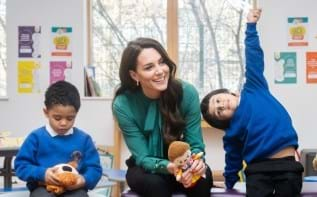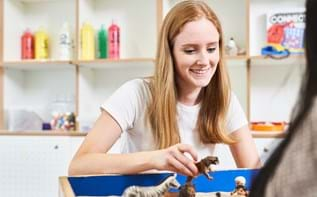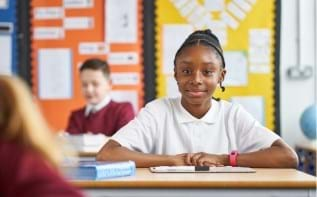It’s time to lose the ‘angry boy’ label
It’s time to lose the ‘angry boy’ label

James Emmett
Regional Clinical Lead for The North – James is a qualified counsellor and clinical supervisor with over 15 years’ experience working with children and young people. James joined Place2Be in 2013 and holds national responsibility for Group Work, including our Journey of Hope and Racial Identity programmes.
This Men’s Health Week our Regional Clinical Leads, James Emmett and William Guri, reflect on the specific needs of boys who access Place2Be’s services – and what we can all do to better support boys’ mental health.
Last year, we published a study in the BACP’s Journal of Counselling & Psychotherapy Research of the reasons that children are referred for Place2Be’s counselling – based on data from over 8,800 children across almost 300 primary schools over 3 years. Some interesting findings were that boys coming for counselling with Place2Be are often seen to have a higher level of need, and experience problems which are seen as challenging such as ‘anger issues, mood swings, impulsivity and callous behaviour’.
Children themselves also quite frequently list their anger as one of the things they are concerned about or want to address at the start of their counselling. As two male therapists, this led us to think about the relationship between boys and mental health and especially the label of the ‘angry boy’.
Of course, all children are different so we cannot generalise about boys’ experiences. But we do know that their mental health is often shaped by the social and cultural expectations and messages that they receive. Messages that tell boys to be strong, not cry, not to show emotion etc. all have an impact on their mental health.
Beneath anger may lie feelings of vulnerability, not belonging, rejection, unworthiness, not being good enough, failure, sadness, and loneliness. Understanding boys’ anger as a gateway emotion for other uncomfortable feelings can help us to connect with and better serve the needs of each child.
Looking at boys’ mental health experience must go beyond the traditional assumptions about their behaviour. Focusing only on what external behaviours we see can lead to us missing what’s happening on the inside. Like all children, boys are not immune to feelings of loneliness, sadness, hurt, rejection, abandonment, fear, worry or anxiety. And like all children, boys do not always ‘display’ these feelings, but may also bottle them up as well.
Here are some helpful things that can help us all support boys’ mental health experience better:
- Avoiding focusing only on outward behaviours
- Understanding that anger is a feeling and not a behaviour
- Understanding that anger can be covering up other feelings
- Listening to, and understanding, their experience of anger
- Understanding our own experience of anger so that we can respond in a calm and safe way
- Avoid judging, shaming, dismissing, rejecting boys’ other emotions such as sadness and loneliness
- Learn how to help boys’ regulate their anger
- Be aware of our language and use it to support a variety of emotions
Given the prevalence of mental health problems rated as severe among boys in our recent paper, it is important that we seek ways to develop and support boys’ resilience. This can be achieved by helping boys to understand their emotional experiences and express themselves in healthy ways.
Boys can learn coping strategies and develop positive health-seeking behaviours. Mental health resilience for boys includes knowing that it is alright to ask for help and to use resources that are available. Developing positive relationships, making good friends, and engaging with others in activities that support and enhance their mental health can help boys become resilient in the face of mental health challenges.
News & blogs

Place2Be announces Arts & Minds Gala featuring Alistair Petrie, Katie Melua and LUAP
The gala will bring together 200 guests for an evening to remember, and raise vital funds for children’s mental health.
Read more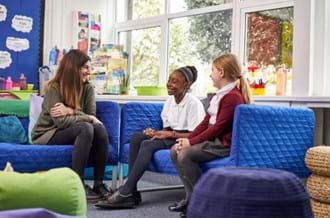
Training as a child counsellor in a Place2Be school
We sat down with Adele to learn more about her experience of training as a child counsellor with Place2be.
Read more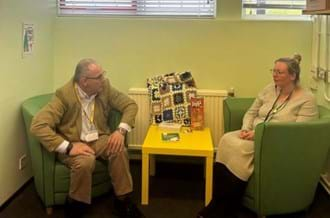
Harlow MP sees impact of our embedded service during school visit
Robert Halfon visited Stewards Academy on Friday 19 April, gaining insight into how Place2Be’s service supports students.
Read more
